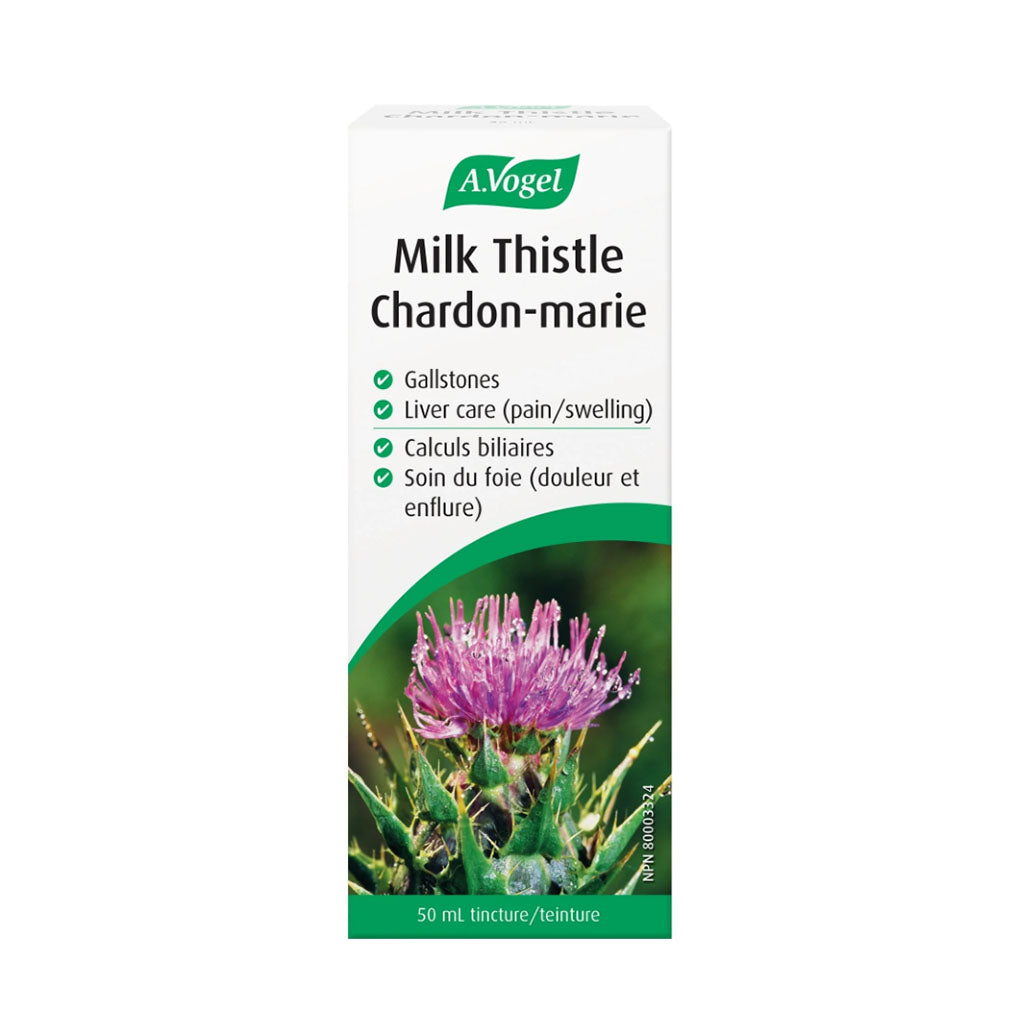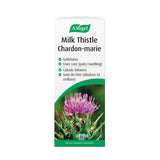

Milk Thistle Liver Care
- 21.99$
23.49$- 21.99$
- Price per unit
- by
Milk thistle is used to treat liver and gallbladder problems.
Promotes liver health and treats symptoms caused by liver pain, such as liver congestion, gallstones, liver swelling and pain, etc.
A.Vogel Milk thistle liver care
Traditionally used for:
-
treating disorders and congestion of the liver, spleen and gallbladder
-
gallstones
-
liver swelling and pain.
Historical overview:
Milk thistle is a majestic plant whose leaves are streaked with large white veins and spots. Its name derives from the medieval tradition that the white of its leaves comes from the Virgin Mary's milk, which is said to have fallen on it. The seeds of this plant are probably among the best liver regenerators. Milk thistle's active ingredients are flavones and flavo-lignans, collectively known as silymarins. These molecules have antioxidant and anti-proliferative effects that we have yet to discover.
Actions and pharmacology :
For the preparation of milk thistle extract at A.Vogel, we have taken the trouble to remove the aigrettes on top of the milk thistle fruit to use only the fruit in the preparation of the tincture. This tincture contains silybin, silydianin, silychristin, isosilybin, small quantities of silandrin, silymonin and silybinomer, the flavonoids quercetin and taxifolin, phytosterols such as sitosterols, and mucilage.
The mechanisms by which milk thistle works are not yet fully understood. It is recognized as having antioxidant(1), anti-inflammatory(2) and anti-proliferative(3) effects. Its hepatoprotective action, although undeniably clinically demonstrated, is still not explained.
Milk thistle is recognized by the German Commission E for the treatment of dyspepsia and liver damage caused by toxic substances, and as an adjuvant treatment for inflammatory liver diseases. (hepatitis) and cirrhosis(4).
Scientific studies :
A study of patients receiving the Alzheimer's drug tacrine showed that milk thistle reduced the drug's gastrointestinal and cholinergic side effects(5).
A study of workers exposed to hepatotoxic industrial solvents demonstrated milk thistle's detoxifying potential. After 30 days of treatment with milk thistle, all liver function parameters (blood enzymes) and platelets improved significantly(6).
An in vivo study demonstrated silymarin's ability to reverse the effects of aflatoxin B1 on liver cells(7).
Several reports mention the efficacy of milk thistle in the treatment of amanita poisoning. It seems that silybin and silybinin are largely responsible for this effect(8-9).
Each mL contains the tincture of :
- Milk thistle fruit (Silybum marianum) (1:2)...923 mg, equivalent to 461 mg fruit
Daily dose (30 drops) contains 839 mg milk thistle tincture.
1 mL tincture contains 0.61 mL alcohol (ethanol).
1 mL = 33 drops. Built-in dropper.
Adults: Take 10 drops in a little water, 3 to 5 times a day. Swallow before swallowing.
Consult a health care practitioner before prolonged use.
Related products
- 21.99$
23.49$- 21.99$
- Price per unit
- by
- 21.99$
23.49$- 21.99$
- Price per unit
- by
- 21.99$
23.49$- 21.99$
- Price per unit
- by
- 21.99$
23.49$- 21.99$
- Price per unit
- by
- 21.99$
23.49$- 21.99$
- Price per unit
- by
- 21.99$
23.49$- 21.99$
- Price per unit
- by
- 21.99$
23.49$- 21.99$
- Price per unit
- by
- 21.99$
23.49$- 21.99$
- Price per unit
- by
- 21.99$
23.49$- 21.99$
- Price per unit
- by
- 21.99$
23.49$- 21.99$
- Price per unit
- by
Recently viewed products
- 21.99$
23.49$- 21.99$
- Price per unit
- by
- 21.99$
23.49$- 21.99$
- Price per unit
- by
- 21.99$
23.49$- 21.99$
- Price per unit
- by
- 21.99$
23.49$- 21.99$
- Price per unit
- by
- 21.99$
23.49$- 21.99$
- Price per unit
- by
- 21.99$
23.49$- 21.99$
- Price per unit
- by
- 21.99$
23.49$- 21.99$
- Price per unit
- by
- 21.99$
23.49$- 21.99$
- Price per unit
- by
- 21.99$
23.49$- 21.99$
- Price per unit
- by
- 21.99$
23.49$- 21.99$
- Price per unit
- by
- Choosing a selection causes the entire page to be updated.


